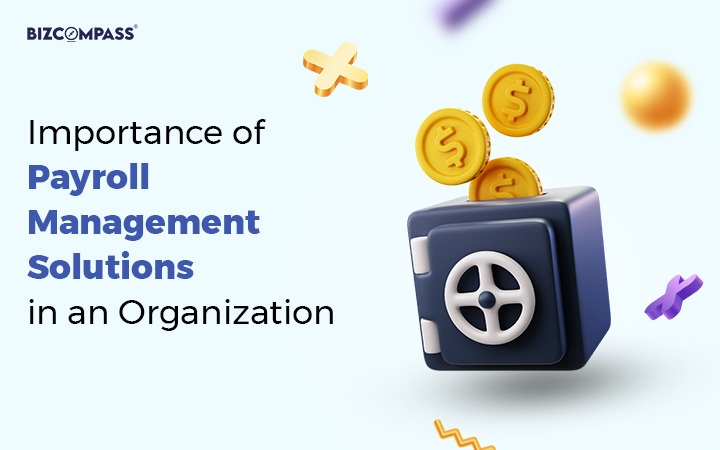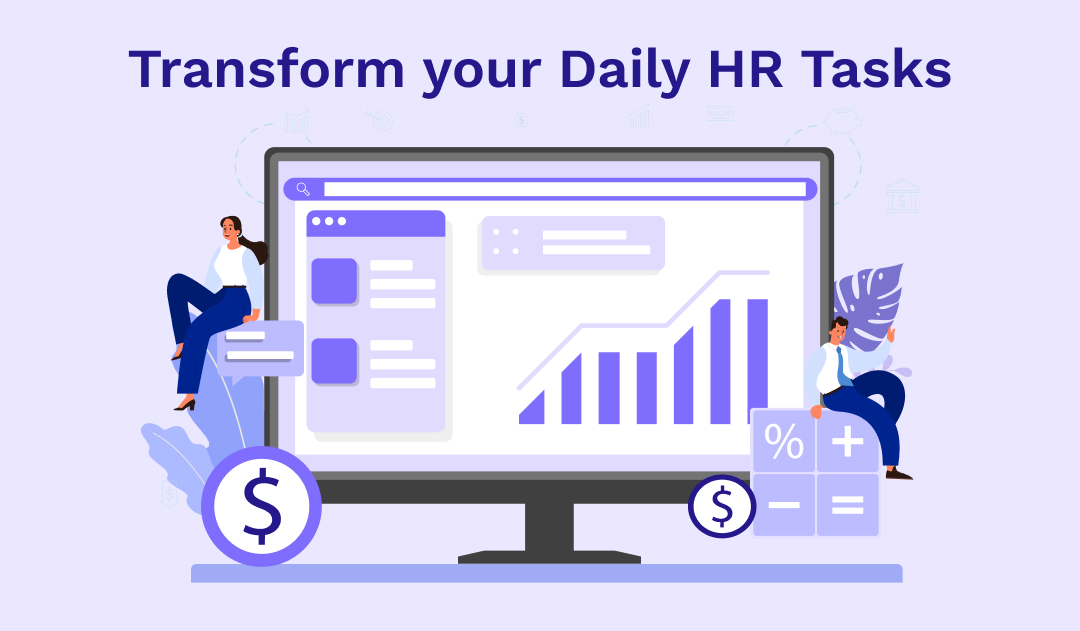Introduction
Payroll Management Solutions refer to the integrated systems, software, and processes utilized by organizations to effectively manage and administer their payroll functions.Â
These solutions encompass various tasks, including but not limited to, calculating employee wages, deductions, taxes, and other financial withholdings, issuing payments, maintaining accurate records, and ensuring compliance with relevant regulations and policies.Â
Payroll management solutions may range from basic software programs to comprehensive automated systems that streamline the entire payroll process. Effective payroll management plays a crucial role in the smooth operation of businesses for several reasons.Â
Firstly, it ensures timely and accurate payment to employees, which is essential for maintaining employee satisfaction and morale. A reliable payroll system also helps in complying with legal and regulatory requirements related to tax deductions, social security contributions, and other financial obligations, reducing the risk of penalties or legal issues for the organization.Â
Moreover, payroll management solutions contribute to enhanced financial transparency and accountability within the organization, facilitating better budgeting and financial planning.Â
By automating repetitive tasks and minimizing the potential for errors, these solutions improve operational efficiency and reduce administrative burden, allowing HR and finance teams to focus on more strategic activities. Effective payroll management is essential for fostering a positive work environment, ensuring compliance with laws and regulations, and optimizing organizational resources for sustainable growth and success.Â
The Evolution of Payroll Management
The history of payroll management traces back to ancient civilizations where manual methods were used to track and compensate labor. From the barter system to the introduction of currency, payment for services rendered has been a fundamental aspect of human societies.Â
In more recent history, the Industrial Revolution led to the emergence of larger-scale employment, necessitating more structured payroll systems. Manual ledger books and handwritten records were common, albeit labor-intensive, and prone to errors.Â
The transition to modern payroll systems began in the mid-20th century with the advent of computers and electronic data processing. This era saw the development of basic payroll software and the automation of certain payroll tasks, reducing manual labor and improving accuracy. With the rise of the internet and cloud computing in the late 20th and early 21st centuries, payroll management underwent further evolution.Â
Online payroll services and software as a service (SaaS) platforms emerged, offering greater accessibility, scalability, and integration with other HR and accounting systems.Â
Today, modern payroll systems leverage advanced technologies such as artificial intelligence (AI) and machine learning to streamline processes, enhance accuracy, and provide insights for strategic decision-making. Mobile applications and self-service portals empower employees to access their payroll information conveniently, further enhancing efficiency and transparency.Â
The evolution of payroll management continues as organizations strive to adopt innovative solutions to meet the evolving needs of the workforce and regulatory landscape.Â
The Core Components of Payroll Management Solutions
01 Payroll ProcessingÂ
Payroll processing is the foundational component of payroll management solutions. It involves calculating employee wages based on hours worked, salary rates, bonuses, and overtime, while also considering deductions for taxes, benefits, and other withholdings.Â
It ensures accurate and timely payment to employees, considering various factors such as attendance, leave, and special circumstances that may affect compensation.Â
02 Tax ComplianceÂ
Tax compliance is a critical aspect of payroll management solutions, ensuring that organizations accurately calculate and withhold taxes from employee wages according to relevant federal, state, and local regulations.Â
This component involves staying updated on tax laws, rates, and reporting requirements, as well as processing and remitting payroll taxes to the appropriate tax authorities promptly. Â
Adhering to tax compliance helps organizations avoid penalties and legal consequences while maintaining financial integrity.Â
03 Employee Benefits AdministrationÂ
Employee benefits administration encompasses managing and administering various employee benefits programs, such as health insurance, retirement plans, and paid time off.Â
Payroll management solutions facilitate the enrollment, tracking, and deduction of employee benefits contributions from payroll, ensuring that employees receive their entitled benefits accurately and efficiently. Effective benefits administration enhances employee satisfaction and retention while supporting organizational talent management objectives.Â
04 Time and Attendance TrackingÂ
Time and attendance tracking is integral to payroll management solutions, enabling organizations to accurately record and monitor employee work hours for payroll purposes.Â
This component involves capturing employee time data through various methods such as time clocks, electronic timekeeping systems, or mobile applications.Â
Time and attendance tracking ensures compliance with labor laws, facilitates accurate payroll processing, and provides insights into workforce productivity and attendance patterns for workforce management purposes.Â
Advantages Of Utilizing Payroll Management Solutions
Utilizing payroll management solutions provides numerous advantages, including improved efficiency and accuracy, cost savings, compliance with regulations, and enhanced data security, making them indispensable tools for modern businesses.Â
01 Efficiency and AccuracyÂ
Payroll management solutions offer increased efficiency and accuracy in processing payroll tasks. Automated calculations reduce the likelihood of human error, ensuring accurate employee compensation, tax deductions, and benefits administration.Â
Streamlined processes also save time for HR and finance teams, allowing them to focus on strategic initiatives rather than repetitive administrative tasks.Â
02 Cost SavingsÂ
Implementing payroll management solutions can lead to significant cost savings for organizations. By automating payroll processes, businesses can reduce the need for manual labor, paper-based systems, and the potential for errors that could result in costly penalties or overpayments. Streamlined workflows contribute to overall operational cost reductions.Â
03 Compliance with RegulationsÂ
Payroll management solutions help ensure compliance with complex and ever-changing regulations related to payroll taxes, labor laws, and employee benefits. These solutions incorporate built-in features and updates to stay current with legal requirements, reducing the risk of non-compliance penalties and legal liabilities for the organization.Â
04 Enhanced Data SecurityÂ
Payroll management solutions offer enhanced data security measures to protect sensitive employee information, such as Social Security numbers, bank account details, and salary information. Advanced encryption, secure data storage, and access controls safeguard confidential data from unauthorized access, mitigating the risk of data breaches and theft.Â
Choosing The Right Payroll Management Solution
Selecting the right payroll management solution requires a thorough understanding of business needs, consideration of scalability and flexibility, evaluation of integration capabilities, and assessment of vendor reputation and support.Â
By carefully evaluating these factors, organizations can select a solution that best meets their requirements and contributes to streamlined payroll processes and overall business success.Â
01 Understanding Business NeedsÂ
Before selecting a payroll management solution, it's crucial for organizations to thoroughly understand their specific business needs and requirements.Â
This involves assessing factors such as the size of the workforce, payroll complexity, budget constraints, regulatory compliance needs, and desired features.Â
By identifying key priorities and pain points, businesses can narrow down their options and choose a solution that aligns with their unique needs.Â
02 Scalability and FlexibilityÂ
Scalability and flexibility are essential considerations when choosing a payroll management solution, especially for growing businesses.Â
The chosen solution should be capable of accommodating future growth and changes in workforce size and payroll complexity. Moreover, flexibility in terms of customizable features and scalability in terms of accommodating increased transaction volumes or additional functionalities are vital for long-term suitability.Â
03 Integration CapabilitiesÂ
Integration capabilities are critical for seamless data exchange between the payroll system and other business systems such as HR management software, accounting software, time and attendance systems, and employee benefits platforms.Â
Choosing a payroll management solution with robust integration capabilities ensures smooth workflows, eliminates data silos, and improves overall operational efficiency.Â
04 Vendor Reputation and SupportÂ
Vendor reputation and support are significant factors to consider when selecting a payroll management solution. Organizations should research and evaluate the reputation and track record of potential vendors, including their experience in the industry, client testimonials, and customer support services. A reliable vendor with a reputation for excellent customer support ensures ongoing assistance, timely updates, and troubleshooting services, contributing to a positive user experience and long-term satisfaction.Â
In case you are looking for a payroll management solution for your company, get in touch with Bizcompass. We have got the ideal system for your needs.Â
Future Trends in Payroll Management Solutions
Trends in payroll management solutions will revolve around automation and AI technologies, mobile accessibility and remote work capabilities, and the integration of predictive analytics for payroll forecasting. Embracing them will enable organizations to streamline payroll processes, enhance employee experience, and make data-driven decisions to support their objectives.Â
01 Automation and Artificial IntelligenceÂ
The future of payroll management solutions will see an increasing reliance on automation and artificial intelligence (AI) technologies. Automation will streamline repetitive tasks such as data entry, payroll processing, and compliance checks, reducing manual effort and minimizing errors. Â
AI will enhance payroll systems by analyzing data patterns, identifying discrepancies, and providing insights for more accurate decision-making.Â
Machine learning algorithms will continuously improve payroll processes, adapt to changing regulations, and optimize payroll strategies based on historical data.Â
02 Mobile Accessibility and Remote WorkÂ
With the rise of remote work and the increasing reliance on mobile devices, future payroll management solutions will prioritize mobile accessibility and remote capabilities.Â
Employees will expect convenient access to their payroll information, including pay stubs, tax forms, and benefits enrollment, through mobile applications or responsive web portals.Â
Managers and HR professionals will also require mobile-friendly tools for approving timesheets, processing payroll remotely, and managing workforce-related tasks from anywhere, facilitating efficient payroll management in a decentralized work environment.Â
03 Predictive Analytics for Payroll ForecastingÂ
Predictive analytics will play a significant role in future payroll management solutions, enabling organizations to forecast payroll costs more accurately and proactively address potential issues. Â
By analyzing historical payroll data, employee turnover rates, market trends, and other relevant factors, predictive analytics algorithms will predict future payroll expenses and identify cost-saving opportunities. This proactive approach to payroll forecasting will help organizations better allocate resources, plan budgets, and mitigate financial risks, ultimately improving overall financial management and strategic decision-making.Â
Conclusion
In conclusion, this exploration of payroll management solutions highlighted their definition as integrated systems for administering payroll functions, their historical evolution from manual to modern systems, and their core components such as payroll processing, tax compliance, employee benefits administration, and time and attendance tracking.Â
Additionally, we discussed the advantages of utilizing these solutions, including efficiency, cost savings, compliance, and enhanced data security. The importance of payroll management solutions in business success cannot be overstated. Efficient and accurate payroll processes contribute to employee satisfaction, financial transparency, and legal compliance.Â
These solutions not only streamline administrative tasks but also play a crucial role in strategic financial planning, allowing organizations to allocate resources effectively and focus on core business objectives. The integration of payroll management solutions is integral to fostering a positive work environment and maintaining the financial health of an organization.Â
Looking ahead, the future of payroll management solutions lies in automation, artificial intelligence, mobile accessibility, and predictive analytics. Businesses are encouraged to embrace these trends to stay ahead in an evolving landscape.Â
Investing in advanced payroll technologies not only ensures compliance with changing regulations but also positions organizations to adapt to remote work trends and harness the power of data for informed decision-making.Â
Lastly, as businesses navigate the future, a strategic approach to selecting and implementing payroll management solutions will be crucial for maintaining operational efficiency, financial stability, and overall success in the competitive business environment. Don’t forget to check out Bizcompass, a comprehensive solution to blow off your payroll-related worries.Â


 >
>




